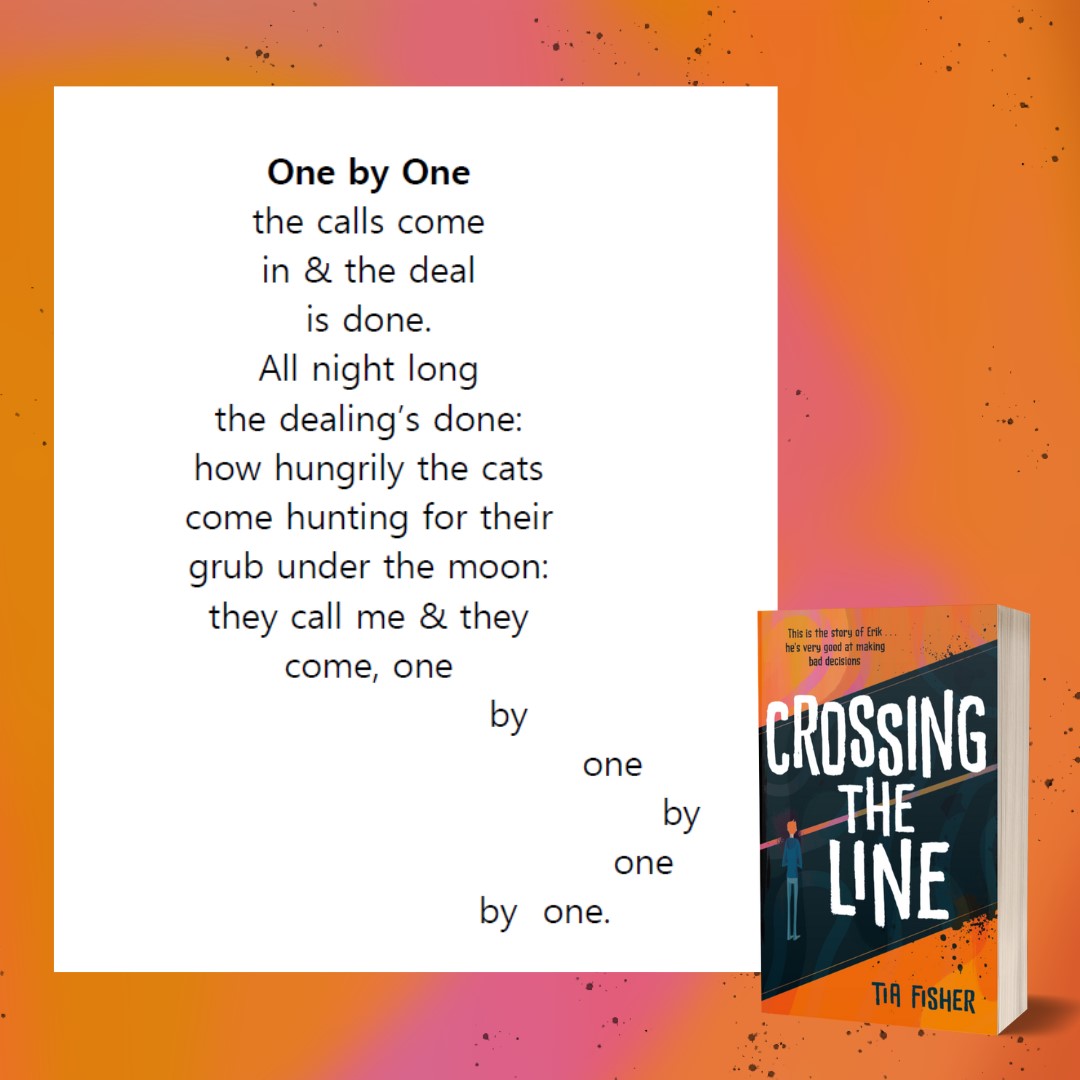Tia Fisher’s debut teen verse novel Crossing the Line is based on a true story about a teenager caught up with a county lines drug gang. Tia explains why it had to be in verse format.
 "When I decided to write about county lines, I knew I had to write it in verse. Why? Because if I was going to get the message across to 14-year-old boys, it had to be accessible, pacey and pack a punch. Sounds like a contradiction in terms, doesn’t it? Accessible verse. And yet, it works. Verse novels are magic for disengaged or challenged readers.
"When I decided to write about county lines, I knew I had to write it in verse. Why? Because if I was going to get the message across to 14-year-old boys, it had to be accessible, pacey and pack a punch. Sounds like a contradiction in terms, doesn’t it? Accessible verse. And yet, it works. Verse novels are magic for disengaged or challenged readers.
For a start, they’re perhaps only a third of the word count of their prose counterparts. Turning a page, reading to the end of a chapter, finishing a book in only hours or days, can deliver a real dopamine hit of achievement. And for those who may struggle with a big black block of text (including the neurodiverse and those with English as an additional language), the white space is a relief, a resting place.
Crossing the Line has been read aloud by tutors to whole cohorts of Y9 students in just a week (key poems projected on to the board). That wouldn’t be possible with prose. Many verse novels offer imaginative formatting: fonts, layout, calligrams and concrete poems providing visual clues to meaning. They may mix in other media, such as playscripts or message boards. Combined with the page-turning speed of read, the whole experience can be close to reading a graphic novel or scrolling on a phone.
Which isn’t to say that they’re a shallow read. As with any poetry, students can return and analyse in greater detail the author’s choice of words and (crucially) their placement on the page. But unlike poetry, students are reading a story, and the story will pull them through.
Verse novels are immediate and immersive. The distilled interiority of the verse format pairs so well with the emotional intensity of adolescence, putting the reader right inside the narrator’s head. There’s an increasing number of middle grade titles available too, and LoveReading4Kids curates an excellent list of the best verse novels.
Teachers don’t need telling how critical reading for pleasure is. Perhaps all they need is the courage to bring verse novels into their classrooms. Narrative verse has been a popular format in the States for a quarter of a century because librarians and teachers don’t underestimate young people’s ability to understand verse; on the other side of the pond, training and resources abound.
I’d like to share this triumph: a school librarian told me she’d persuaded a Y8 boy who wouldn’t normally be seen dead picking up a book to try Crossing the Line. Three hours later, he was still reading; he thought the book was ‘Brilliant, miss!’ and – best of all – he wants to start up a book club at school.
Job done.
––––––––––––-
Crossing the Line (Hot Key Books) is recommended for ages 13-15.
Crossing the Line won the Yoto Carnegie Shadowers’ Choice Medal for Writing 2024.
Free resources for Crossing the Line are available on the author’s website at www.tiafisher.com.



---copy.jpg)


Comments (1)
JerryNeplyWO J - 28th June 2024
This comment is currently awaiting moderation.
Leave A Reply
You must be logged in to post a comment.